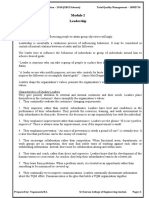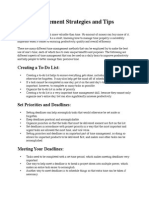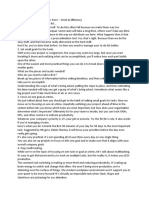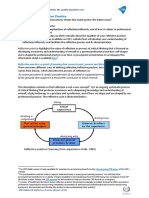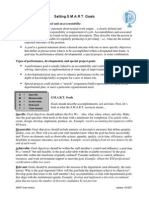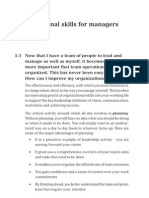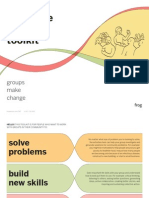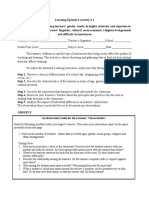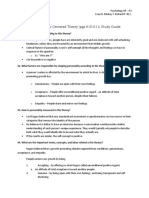0% found this document useful (0 votes)
145 views25 pagesTime Management
This document provides a workbook on time management and self-management. It contains various assessments, tests, and exercises to help the reader better understand how they spend their time and identify areas for improvement. These include checking common time wasters, setting goals and priorities, creating daily schedules, and developing strategies to say no and delegate tasks. The overall aim is to help the reader gain more control over their time and increase productivity through self-reflection and planning.
Uploaded by
ssalmanhaiderCopyright
© © All Rights Reserved
We take content rights seriously. If you suspect this is your content, claim it here.
Available Formats
Download as PDF, TXT or read online on Scribd
0% found this document useful (0 votes)
145 views25 pagesTime Management
This document provides a workbook on time management and self-management. It contains various assessments, tests, and exercises to help the reader better understand how they spend their time and identify areas for improvement. These include checking common time wasters, setting goals and priorities, creating daily schedules, and developing strategies to say no and delegate tasks. The overall aim is to help the reader gain more control over their time and increase productivity through self-reflection and planning.
Uploaded by
ssalmanhaiderCopyright
© © All Rights Reserved
We take content rights seriously. If you suspect this is your content, claim it here.
Available Formats
Download as PDF, TXT or read online on Scribd
/ 25


